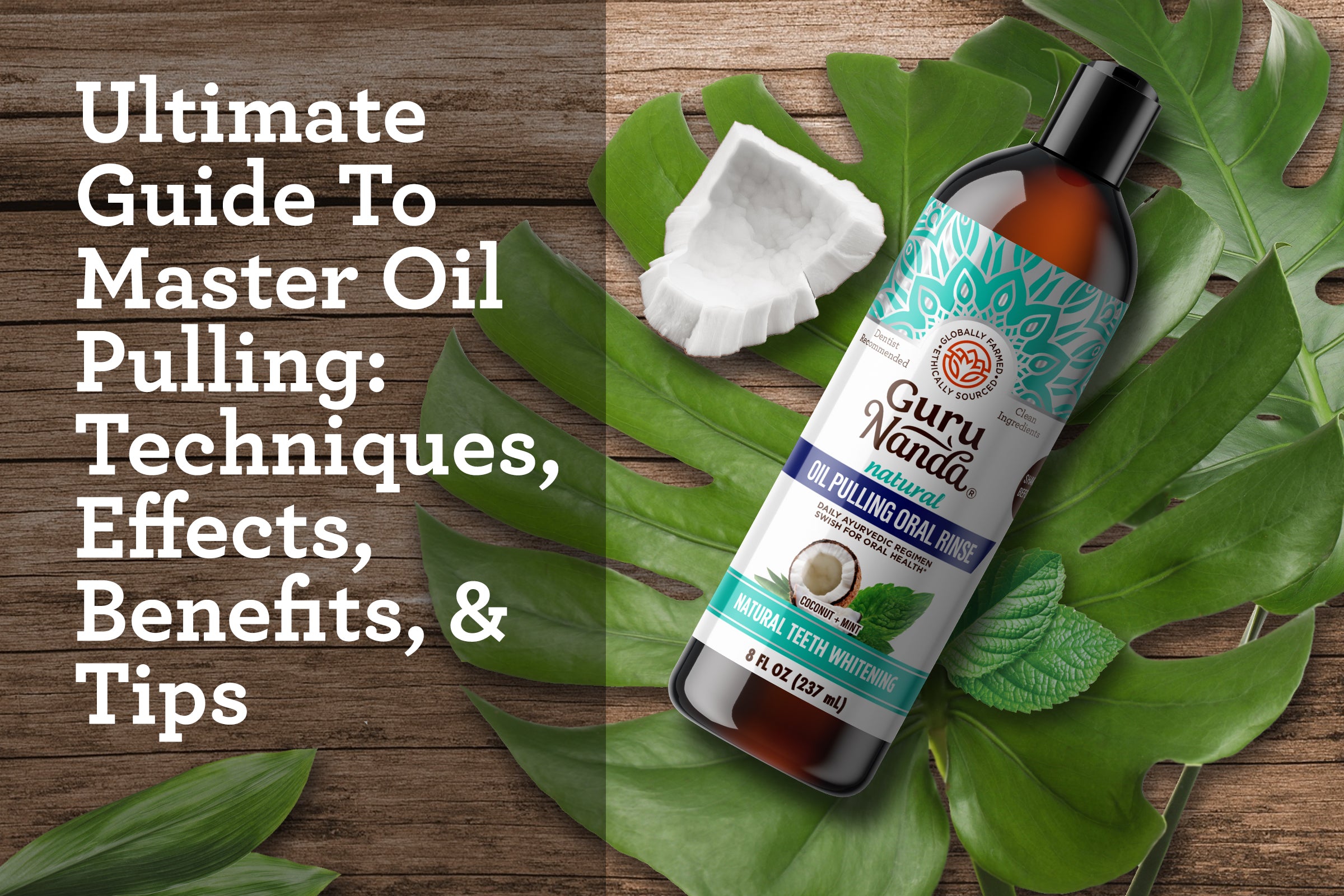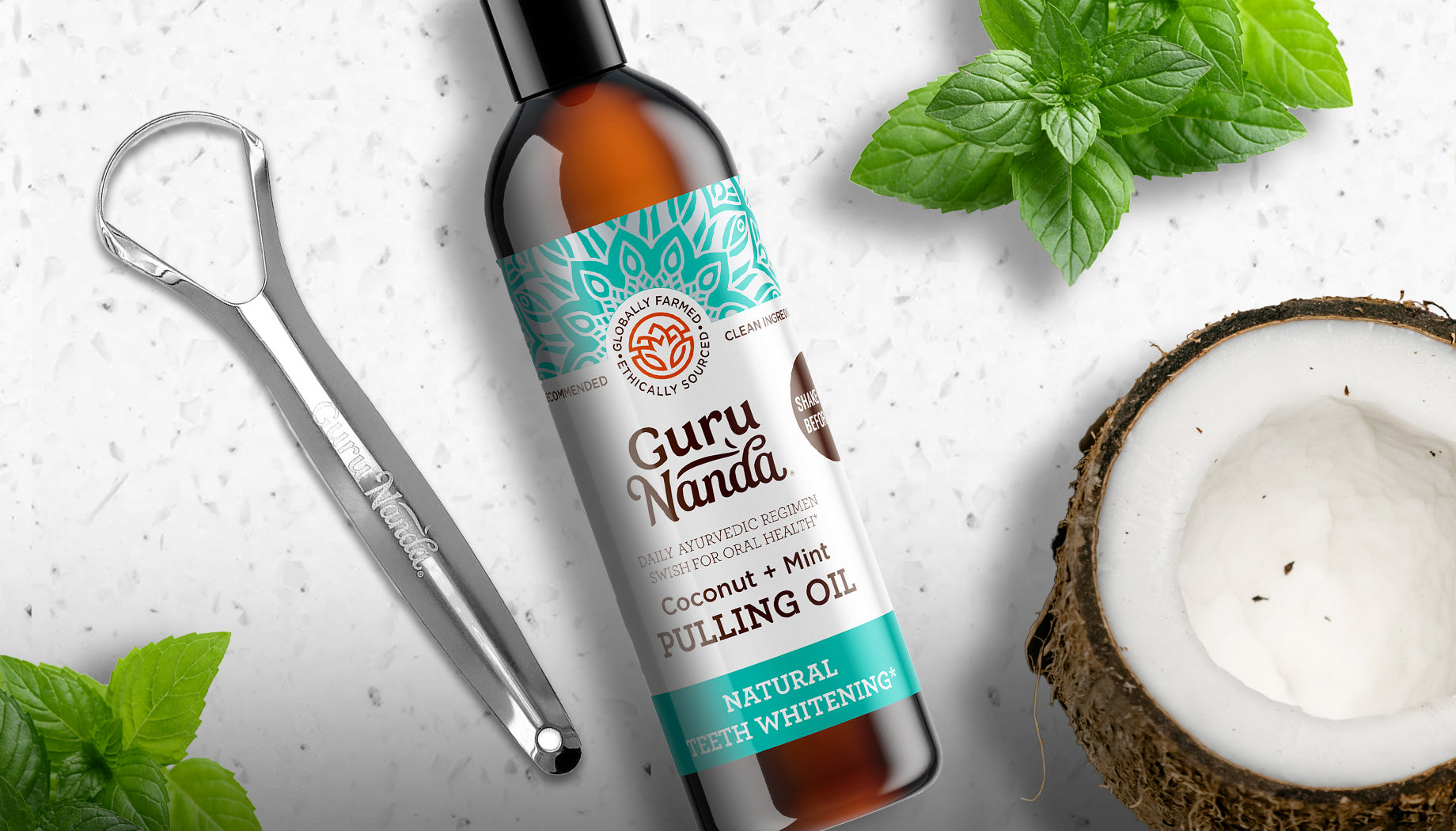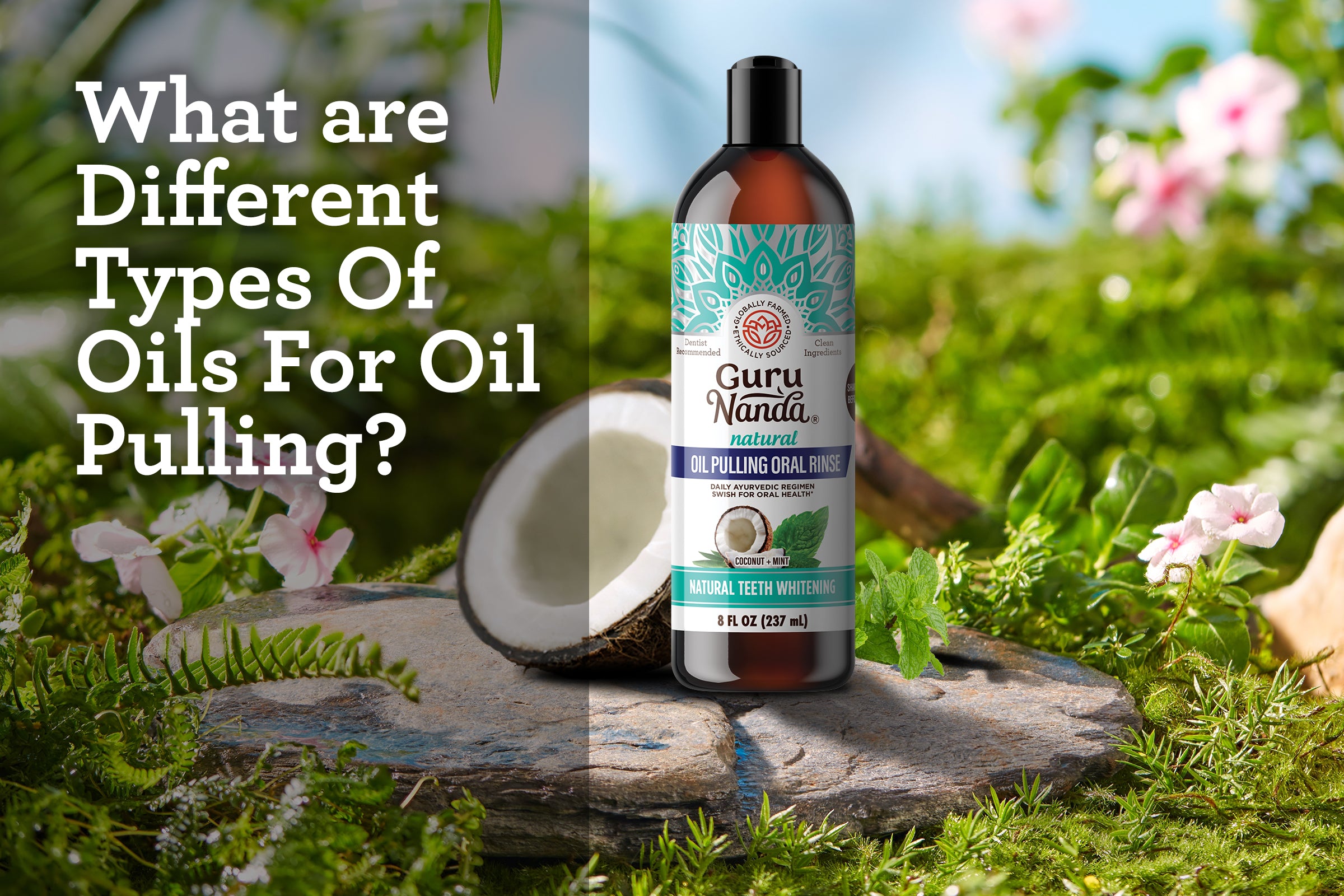Oil pulling, a traditional Ayurvedic practice, has re-emerged as a popular method because of its benefits that help in enhancing oral and overall health. Traditionally performed with sesame, sunflower, or coconut oil, the latter has become the go-to choice for many, backed by research for its efficacy. However, with a plethora of options available, what type of coconut oil to use for oil pulling still remains a question. Selecting the right type of coconut oil—refined, unrefined, or fractionated—becomes a crucial decision for those looking to integrate this technique into their daily oral care routine. This blog delves into the distinctions among these coconut oils and aims to guide you in selecting the best type of coconut oil for oil pulling.
Fractionated Coconut Oil For Oil Pulling
Fractionated coconut oil stands out as a prime choice for oil pulling, especially appreciated for its neutral taste and its ability to maintain liquidity at room temperature. This specific form of coconut oil undergoes a process that eliminates long-chain fatty acids while retaining medium-chain triglycerides (MCTs). Its liquid state and neutral flavor simplify the swishing process during oil pulling, rendering it an effortless option for regular oral care routines.
Moreover, the absence of long-chain fatty acids not only extends the shelf life of Fractionated Coconut Oil but also enhances its resistance to oxidation, ensuring a longer-lasting product compared to unrefined coconut oil. Its lack of scent, color, and greasiness further elevates its appeal, making it a popular choice as a carrier oil in various applications.
This liquid consistency sets it apart from regular coconut oil, which solidifies at cooler temperatures. As a result, Fractionated Coconut Oil finds versatile use in skincare products, massage oils, and as a carrier oil for essential oils. Its lighter texture and extended shelf life make it a favored option across multiple domains including oil pulling.
One popular option for fractionated coconut oil is GuruNanda’s oil pulling products. They are free from any chemicals, even though they are processed to be fractionated, and they offer the added benefits of vitamins and essential oils.
Refined Coconut Oil For Oil Pulling
Refined coconut oil undergoes extensive processing compared to its unrefined counterpart, aimed at enhancing its properties. Extracted from dried coconut meat, known as copra, this version is widely available in grocery and health stores.
During production, refined coconut oil undergoes processes like bleaching and deodorizing, which remove certain natural elements, including its inherent coconut flavor and scent. Despite this, refined coconut oil remains a valuable option for oil pulling.
Refined coconut oil's lack of taste and odor, stemming from the removal of specific components during processing, enhances its versatility for integration into daily oil-pulling routines. As a rich source of fatty acids, refined coconut oil encapsulates the essence of oil pulling benefits, making it a valuable addition to oral care practices. [1]
Unrefined Coconut Oil For Oil Pulling
Unrefined coconut oil, often referred to as virgin or extra virgin coconut oil, is derived from fresh coconuts through the initial pressing, without further refinement. Unrefined coconut oil despite its natural appeal has several disadvantages. It retains a strong coconut flavor and aroma due to minimal processing, which can be challenging for some uses, such as oil-pulling routines. The thick texture can be inconvenient, especially if not liquefied beforehand, making it uncomfortable to use directly. Proper storage is crucial to maintain its freshness and quality; it should be kept in a cool, dark, and dry place, away from direct light sources, like the stove. Since it solidifies at room temperature, reheating before use may be necessary, adding an extra step to its usage. Additionally, it is also generally more expensive and has a shorter shelf life, potentially going rancid more quickly if not stored properly. Furthermore, due to minimal processing, there is a higher chance of contaminants or impurities being present. [2]
Extracted from fresh coconuts through the initial pressing without further refinement or the addition of chemicals, unrefined coconut oil is derived either through dry or wet methods from the coconut meat, maintaining its distinct characteristics.
Best Type of Coconut Oil For Oil Pulling - Refined Or Unrefined
When considering the ideal coconut oil for oil pulling, understanding the differences between refined, unrefined, and fractionated varieties is essential. Fractionated coconut oil and refined coconut oil offer versatility and convenience with their liquid form, neutral taste, and odorless profile. These qualities make them easy to use and more palatable for daily oral care routines. On the other hand, unrefined coconut oil is rich in natural coconut essence but requires extra care in storage and preparation. It is thick and has a strong taste that may be inconvenient for some users. Additionally, its texture can be challenging if not liquified before use. Ultimately, selecting the most suitable option depends on convenience and the ability to gain all the benefits together. Oils such as GuruNanda’s Cocomint pulling oils provide all the natural properties of unrefined coconut oil along with the simplified benefits of refined versions. This combination ensures you can enjoy the advantages of both types without compromising on quality or ease of use.
FAQs
Q: What type of coconut oil is best for oil pulling?
A: Fractionated and refined coconut oils are ideal for oil pulling due to their liquid form, neutral taste, and odorless profile, making them convenient and easy to use. Unrefined coconut oil, while rich in natural essence, is thick and has a strong taste, requiring liquification before use.
Q: Can I use refined coconut oil for oil pulling?
A: Yes, you can use refined coconut oil for oil pulling. It efficiently provides all the benefits of oil pulling due to its high concentration of fatty acids while being tasteless and odorless, enhancing the simplicity of its usage.
Q: Is unrefined coconut oil better for oil pulling compared to refined?
A: Unrefined coconut oil has a strong flavor and thick texture, which may require liquefying before use. It also needs proper storage and reheating due to its tendency to solidify. Refined coconut oil, on the other hand, is easier to swish due to its liquid form and neutral taste.
Q: What's the difference between refined and unrefined coconut oil for oil pulling?
A: Unrefined coconut oil is the natural form derived from fresh coconut meat, retaining its strong flavor and aroma. Refined coconut oil undergoes natural or chemical processing to liquefy the product, making it easier to swish.






